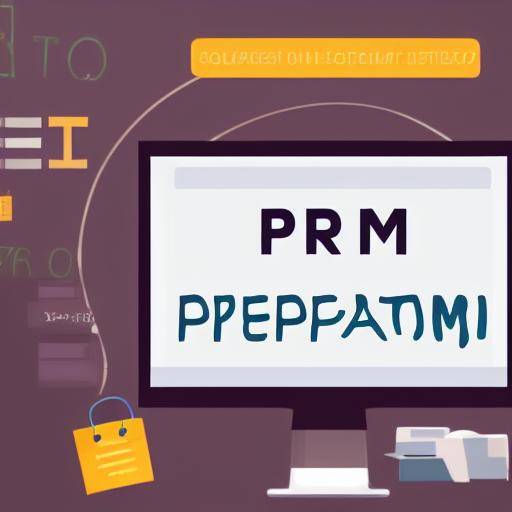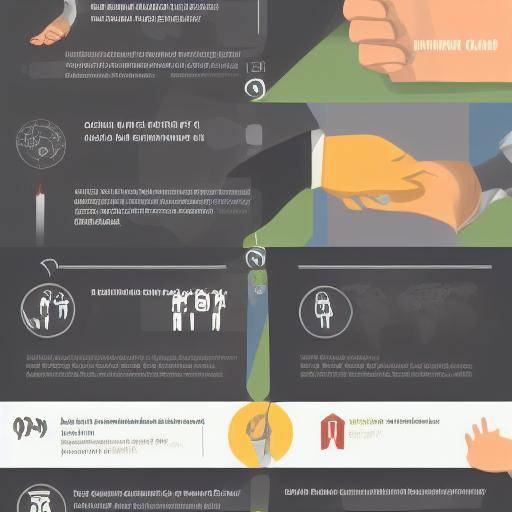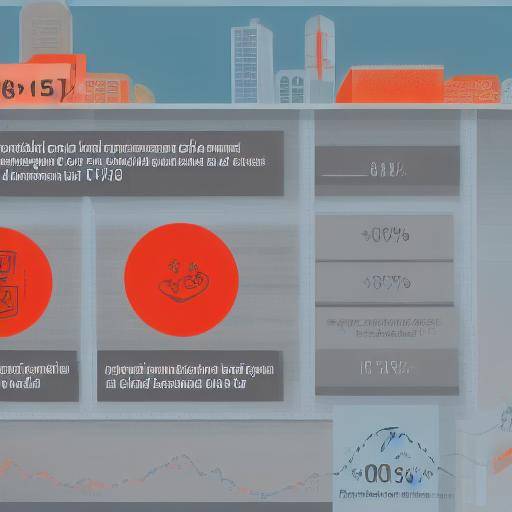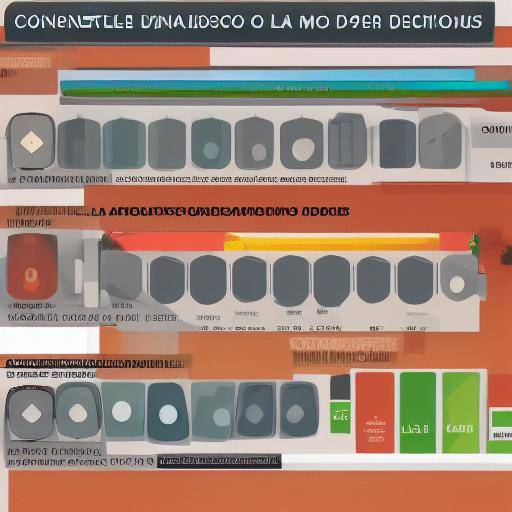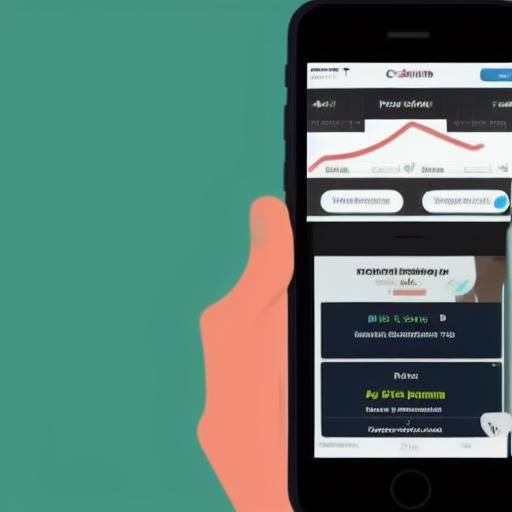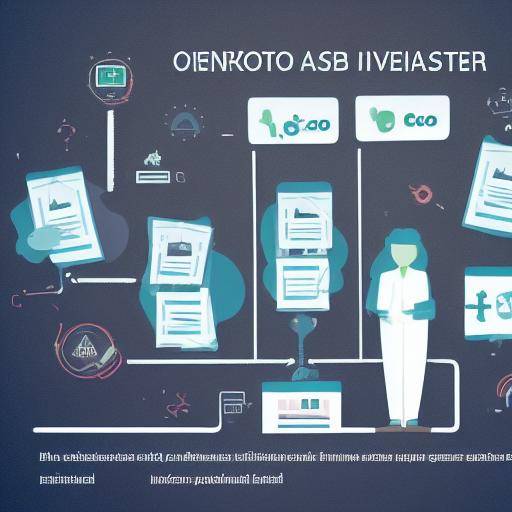
The pursuit of financial knowledge has become a priority for many people seeking to improve their economic situation and increase their financial well-being. One of the most valuable resources to achieve this objective is personal finance books, which offer a wide range of knowledge, strategies and advice for money management. However, with the large number of books available on the market, it may be challenging to select the best that suits our individual needs.
In this guide, we will explore the key criteria you should consider when choosing personal finance books, how to evaluate the quality and relevance of the information presented, and how to make the most successful decision by investing in your financial education through reading.
Criteria to Consider Choosing Personal Finance Books
When selecting personal finance books, it is essential to take into account certain criteria that will help you identify the most valuable works. Some of the most important criteria include:
- Reputation of the Author: It is crucial to assess the author ' s experience and credibility in the financial sphere. Find authors with solid trajectories, recognitions and relevant achievements in the field of personal finance.
- Updated Content: The financial industry is constantly evolving, so it is essential to opt for books that provide up-to-date and relevant information. Make sure the content is not obsolete and address current financial trends.
- Clarity and Understanding: A good personal finance book must present financial concepts in a clear and understandable way, avoiding excessively technical jargon that may be confusing to the average reader.
- Approach to Objectives: Identify your personal financial goals and select books that align with your goals, whether savings, investment, retirement planning, or debt management.
- Reviews and Recommendations: The views of other readers and experts can give you valuable information about the quality and usefulness of a book. Research reliable reviews and recommendations before making your choice.
Evaluation of the Quality and Pertinence of Information
Once you have identified the potential books that meet your criteria, it is important to evaluate the quality and relevance of the information presented. Consider the following aspects when making your evaluation:
- Sources and References: It verifies the sources used by the author to support the information. Books that cite reliable research and evidence-backed data are generally more reliable.
- Practical Approach: The best personal finance books not only offer theories and concepts, but also provide practical examples, case studies and tools that readers can apply in their daily financial life.
- Clarity and Coherence: It evaluates clarity in the presentation of the topics and coherence in the presentation of ideas. A good book must have a logical and fluid structure that facilitates understanding.
- Diversity of Subjects: Some key aspects of personal finance include budget, savings, investment, taxes, insurance, property planning, among others. Make sure the book addresses a variety of issues relevant to your personal financial situation.
Intelligent Decision-Making Choosing Personal Finance Books
Finally, faced with the decision to select personal finance books that will be most beneficial to you, consider the following:
- Cost-Benefits ratio: Evaluate the cost of the book in relation to the potential value you can get from its content. Sometimes investing a little more in a high quality book can result in a more valuable knowledge in the long term.
- Personal Relevance: Before making the purchase, make sure the book is relevant to your current financial situation. If you are going through a moment of indebtedness, for example, look for books that focus on strategies to manage and get out of debt. If you are interested in boosting your investments, look for books that focus on investment strategies and heritage management.
- Consultation Recommendations: Take advantage of the recommendations of experts in personal finances, financial bloggers and online reviews for additional information on the relevance and effectiveness of a specific book.
Through the consideration of these criteria, careful evaluation of the information presented and weighting of your personal financial needs and objectives, you can make informed decisions by choosing the best personal finance books that will enrich your understanding and management of your financial affairs.
Conclusion
By selecting the best personal finance books, you are investing in your financial education and skills development that can positively impact your long-term economic well-being. When considering the key criteria, carefully evaluate the quality and relevance of the information, and make informed decisions, you can maximize the value of your investments in personal finance books.
He recalls that financial education is a continuous journey, and the acquisition of knowledge through reading books is only a facet of this process. The effective implementation of what has been learned and the search for professional advice are also key components for long-term financial success.
Finally, by investing in your financial education, you are taking a significant step towards the autonomy and control of your financial future. Do not underestimate the transforming power of financial wisdom acquired through specialized literature.
Let the search and reading of personal finance books lead you to an economically prosperous and secure future!
Frequently asked questions
Question 1: What is the best approach to learning about personal finance?
El mejor enfoque para aprender sobre finanzas personales es adoptar una mentalidad de aprendizaje continuo. Combina la lectura de libros especializados con la búsqueda de recursos en línea, asistencia de asesores financieros y participación en talleres o conferencias sobre educación financiera.
Question 2: What are some personal finance books recommended for beginners?
Algunos libros recomendados para principiantes en finanzas personales incluyen "Padre rico, padre pobre" de Robert T. Kiyosaki, "Dinero: domina el juego" de Tony Robbins y "El hombre más rico de Babilonia" de George S. Clason.
Question 3: What is the importance of financial education in personal decision-making?
La educación financiera es crucial para la toma de decisiones informadas y prudentes en aspectos como la gestión del dinero, la planificación para el futuro, la inversión y el manejo de riesgos financieros.
Question 4: Should I prioritize reading personal finance books on other forms of financial education?
La lectura de libros de finanzas personales es una excelente forma de educación financiera, pero no debe ser la única. Complementa la lectura con otros recursos, como seminarios, cursos en línea y asesoramiento profesional.
Question 5: What role do financial blogs and online resources play in financial education?
Los blogs financieros y otros recursos en línea son valiosos complementos a la educación financiera, ya que ofrecen una amplia gama de contenido actualizado, opiniones de expertos y ejemplos prácticos.
Question 6: How long should I spend on reading personal finance books every week?
El tiempo dedicado a la lectura de libros de finanzas personales puede variar según tus compromisos y preferencias personales. Sin embargo, dedicar al menos una hora a la semana puede ser un buen comienzo para integrar la educación financiera en tu rutina.
In short, by choosing the best personal finance books, remember to carefully consider the key criteria, evaluate the quality of the information and make decisions that align with your personal financial objectives. Financial education is a journey that requires perseverance, curiosity and commitment to apply what has been learned to achieve long-term financial success. Let the reading of personal finance books guide you to a greater understanding and mastery of your finances!
Remember that these recommendations and tips may vary depending on your individual circumstances. It is always advisable to seek professional advice specific to your personal financial needs.
Happy reading and financial learning!








